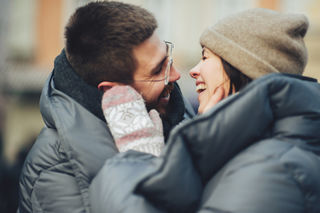
Loneliness
Exposure to Heat Can Improve Mental Well-Being
How a hot bath can do the job of a warm hug.
Posted December 12, 2017

Chamath Palihapitiya, a former Facebook executive, said at a Stanford conference last month that he deeply regrets creating tools that are "eroding the core foundations of how people behave between each other." Virtual social media has one very anti-social flaw: It can’t relay temperature. This creates a socially disconnected experience, because we humans need to feel another person’s presence in multiple ways, including through physical warmth.
Holding a warm hand can buffer a stress response.
The warmth of physical contact can lower heart rate and blood pressure during a stressful experience, and physical affection between partners is associated with lower cortisol levels in the setting of work-related stress.
In a recent study, the brain activity of 110 volunteers (around half of whom were female) was monitored as they anticipated small electric shocks to their ankles while holding someone’s hand. They were tested in three conditions: They held the hand of the person they chose to bring along for the study (a friend or partner); they held the hand of a stranger; or they did not hold anyone’s hand.
Holding the hand of the person they brought along resulted in a significant difference in the brain’s activity pattern. There was less activity in the dACC, the PCC, the posterior parietal cortex (PPC), the right vlPFC, and the right dlPFC, regions associated with self-regulation, when compared to not holding hands with anyone. The brain's activity pattern when holding the hand of a stranger was comparable to not holding anyone’s hand at all. It seems we confer our loved ones with great power over ourselves, but we don’t give this privilege easily to strangers.
If you can’t find a warm hand, hold a cup of coffee instead.
We have a growing problem of loneliness in the United States. Approximately 42.6 million adults over age 45 are estimated to be suffering from chronic loneliness, and more than a quarter of Americans live by themselves. Some studies suggest that physical warmth may be an effective substitute if there is no warm hand to hold, at least in some cases. Making a person feel physically warm may sometimes trick them into feeling emotionally warm.
In a study published in 2012, a group of volunteers played an online ball-tossing game, which left some study participants feeling socially excluded. Those who felt excluded had colder fingers and also felt sad/stressed at the end of the experiment, but holding a hot cup of tea in their hands prevented this. Physical warmth and emotional warmth may, to some extent, be interchangeable. An increase in one compensates for a deficit in the other.
Briefly holding a warm cup of coffee increases social connection and can make people see others as having a “warmer” personality. Opioid signaling is thought to be involved in the mechanistic pathway, since the opioid antagonist naltrexone seems to block this effect.

Heat therapy can help mental well-being.
In 2012, researchers John A. Bargh and Idit Shalev published a study showing that chronic loneliness is associated with an increased tendency to take warm baths. This result was not supported when the experiment was repeated by another research group, but there is emerging evidence, nonetheless, that physical warmth may improve mental well-being.
A randomized, controlled, double-blind trial found that a single session of whole-body hyperthermia reduced depressive symptoms (as measured by the Hamilton Depression Rating Scale) for six weeks afterward. In another randomized, two-arm, placebo-controlled pilot trial, taking a hot bath (40 °C) twice a week for four weeks significantly reduced Hamilton Depression Rating Scale scores, compared to a placebo group. A smaller study from Japan has shown how Waon therapy, which follows a mild sauna protocol, may benefit chronic fatigue syndrome sufferers.
When someone "warms to you," they actually warm you.
This connection between physical warmth and social warmth may, in part, have arisen because when someone “warms” to you, they offer to share their warmth “with” you, so your burden to produce heat is lighter. When the Octodon Degus (a Chilean rodent) shares a home with three or more housemates, it needs 40 percent less energy. For these rodents, being social means being warm.
Social warmth buffers the bitter cold of the northern hemisphere and makes it easier to bear, so it is no coincidence that we spend the coldest, bleakest months of the year honoring traditions that encourage social gatherings. These can sometimes backfire: According to Facebook data, relationship breakups peak two weeks before Christmas.
If tempers fray around your fireplace this winter, keep some chilled eggnog ready. Loneliness and anger have opposite effects on peripheral temperature: While lonely people get cold fingers, cool temperatures may be better for cooling hot heads.
References
Coan JA, Beckes L, Gonzalez MZ, et al. Relationship status and perceived support in the social regulation of neural responses to threat. Soc Cogn Affect Neurosci. 2017 Oct 1;12(10):1574-1583.
“Loneliness: A Growing Public Health Threat,” Plenary, Saturday, Aug. 5, 3-3:50 p.m. EDT, Room 151A, Street Level, Walter E. Washington Convention Center, 801 Mount Vernon Pl., N.W., Washington, D.C American Psychological Association Annual Meeting 2017.
Ijzerman H, Gallucci M, Pouw WT, Weiβgerber SC, Van Doesum NJ, Williams KD. Cold-blooded loneliness: social exclusion leads to lower skin temperatures. Acta Psychol (Amst). 2012 Jul;140(3):283-8.
Inagaki TK, Irwin MR, Eisenberger NI. Blocking opioids attenuates physical warmth-induced feelings of social connection. Emotion. 2015 Aug;15(4):494-500.
Williams LE, Bargh JA. Experiencing physical warmth promotes interpersonal warmth. Science. 2008 Oct 24;322(5901):606-7. doi: 10.1126/science.1162548.
Donnellan MB, Lucas RE, Cesario J. On the association between loneliness and bathing habits: nine replications of Bargh and Shalev (2012) Study 1. Emotion. 2015 Feb;15(1):109-19.
Janssen CW, Lowry CA, Mehl MR, et al. Whole-Body Hyperthermia for the Treatment of Major Depressive Disorder: A Randomized Clinical Trial. JAMA Psychiatry. 2016 Aug 1;73(8):789-95.
Naumann J, Grebe J, Kaifel S, et al. Effects of hyperthermic baths on depression, sleep and heart rate variability in patients with depressive disorder: a randomized clinical pilot trial. BMC Complement Altern Med. 2017 Mar 28;17(1):172.
Munemoto T, Soejima Y, Masuda A, Nakabeppu Y, Tei C. Increase in the Regional Cerebral Blood Flow following Waon Therapy in Patients with Chronic Fatigue Syndrome: A Pilot Study. Intern Med. 2017;56(14):1817-1824.
Nuñez-Villegas M., Bozinovic F., Sabat P. (2014). Interplay between group size, huddling behavior and basal metabolism: an experimental approach in the social degu. J. Exp. Biol. 217 997–1002.



